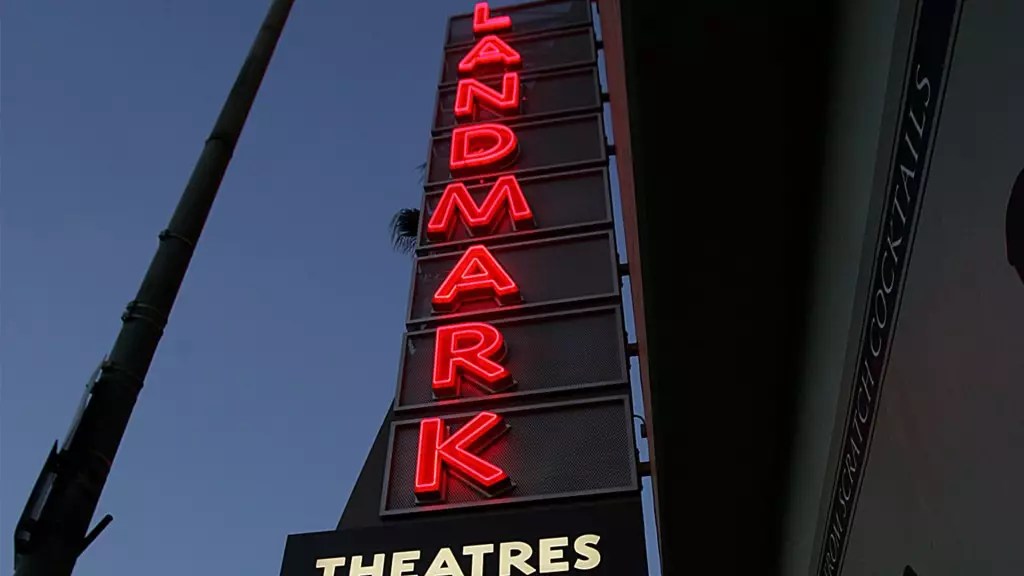The recent foreclosure auction resulting in Creditor Fortress emerging as the sole bidder for several properties owned by Charles Cohen marks a significant turning point in the landscape of arthouse theaters in the U.K. and beyond. With a bid of $5 million securing Curzon—an esteemed arthouse theater chain and distributor—the auction has raised numerous questions regarding the viability of Landmark Theatres and the overall direction of Cohen’s endeavors since he acquired the chain in late 2018. The circumstances surrounding this bid and the lack of competitive offers highlight a cautious approach from potential investors in a saturated market increasingly dominated by financial speculation rather than artistic vision.
While Fortress successfully bid for Curzon, it seems that Landmark Theatres, another key asset in Cohen’s portfolio, will remain with him for the time being. No bids were reported during the auction for this chain, which raises concerns about its operational health. Insiders suggest that Cohen’s ownership of Landmark is not under immediate threat; however, one has to question what it means for a chain to receive zero bids. Are we witnessing the beginning of a period where the arthouse theaters, particularly those under Cohen’s management, face challenges that pose a risk to their very existence?
Cohen’s management style since acquiring Landmark has drawn criticism from the independent distribution community. Operators have voiced their disappointment regarding financial strategies that seem to favor wide releases over the cherished niche offerings that arthouse theaters typically provide. The closure of iconic locations, such as Landmark LA, exacerbates these issues, suggesting a leadership model that perhaps underestimates the unique demands of the arthouse audience.
It is crucial to contextualize these developments within the broader impact of the COVID-19 pandemic, which has undeniably wreaked havoc on cinema attendance and revenue streams. While the pandemic created significant obstacles, the implications for the indie film community extend beyond mere numbers. The theatrical landscape has shifted drastically, forcing theater owners to innovate and rethink their operational strategies. Therefore, it is important to differentiate the residual effects of COVID-19 from a failure to adequately invest in and support indie cinema, an area where Cohen’s management has been questioned.
Creditor Fortress entered into a complex financial arrangement with Cohen, lending him $534 million secured against various properties, including Landmark and Curzon. The recent foreclosure and auction point to fiscal strategies that could potentially alienate the artistic vision that cinema represents. Fortress’s intention to bid $76 million for the Design Center of the Americas and $30 million for a hotel in Dania Beach indicates a diversified approach to asset acquisition, but at what cost?
In pursuing these bids, Fortress has illustrated the modern trend of lenders stepping into direct operational roles in the industries they fund. This raise eyebrows regarding ownership in the sensitive ecosystem of indie filmmaking and distribution. Should Fortress succeed in taking the reins of Curzon, one wonders how this corporate strategy will align with the cultural and artistic imperatives that independent cinema champions.
Cohen’s financial difficulties are not trivial. Recent depositions revealed a stark picture of losses, with Landmark Teatres recording a staggering net loss of over $14 million, while Curzon was not far behind with losses just shy of $8.5 million. These losses underscore the financial fragility in operating arthouse theaters, and whether or not any ownership strategy can revitalize these iconic establishments remains an open question.
Furthermore, Fortress’s legally binding $187 million personal guarantee from Cohen raises serious allegations regarding financial transparency and integrity. According to Fortress, Cohen has attempted to shield his assets from the legal repercussions of his financially untenable situation by moving properties out of his name.
The foreclosure auction of Cohen’s properties serves as more than merely a financial transaction; it represents a watershed moment in indie cinema ownership and management. As industry stakeholders analyze the implications of Fortress’ moves, one must ponder whether the symbiotic relationship between cinema, culture, and commerce can withstand the pressures exerted by aggressive financial entities. As we await further updates, the future remains uncertain but critically significant—a bright beacon for some and a looming storm for others in the world of arthouse cinema.


Leave a Reply